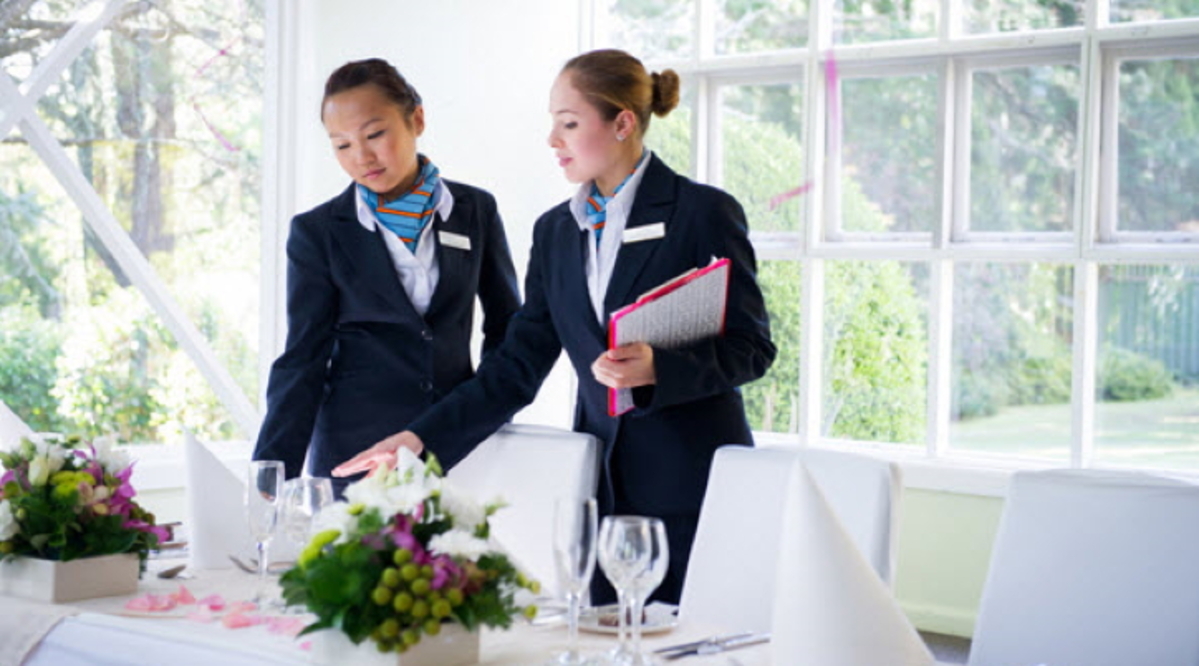4 Key Suggestions For Hospitality Training

February 14, 2022
The hospitality industry is a place where customers and their satisfaction are centered. While having some natural abilities about guest serving will be advantageous for hospitality employees, it is also essential for businesses to organize extensive training to ensure that those employees meet the increasingly changing high standards.


This article offers the greatest hospitality training strategies and tools to help companies convert their workers into hospitality superstars.
1. Conduct new employee orientation
Typsy, an online education platform specialized in hospitality training, shares that hospitality training, as in the majority of industries, begins with orientation. Orientation will help new employees quickly adapt to the organization’s culture and policies, thereby enhancing their productivity and engagement with the organization. Orientation sets the framework for all further developments and should include an overview of the following:
- Brand story: Employees should have a thorough understanding of the company’s history, mission, as well as elements that have made the brand unique among other hotels and restaurants. This will inspire and shape the perceptions and attitudes of new hires so that they can be well equipped to act as brand advocates.
- Human resources management: The HR department should gather paperwork and clearly discuss employee benefits and perks such as health insurance, life insurance, paid time off…
- Personnel resources: Companies should also establish realistic expectations by reviewing employee handbooks, dress codes, and other policies.
A thorough orientation will ensure that your new hires get off to the perfect start.
2. Develop an employee handbook
Providing staff with a comprehensive employee handbook is important to clarify company expectations regarding policies and procedures. This handbook is helpful as both an initial training tool and a guide to expected behavior, allowing workers and managers to effectively communicate job requirements. By keeping employees informed of all job requirements, it not only sets a consistent benchmark for employee performance but also reduces the risk of workplace conflicts and lawsuits. In the long run, the establishment of an employee handbook is an approach that helps businesses develop better policies and procedures as well as foster a positive and engaged workplace culture.
3. Adopt technological training
The hospitality sector is highly competitive and technology, which can help businesses to streamline processes, reduce costs, lower staff workloads, improve customer experience…, is extremely anticipated and quickly implemented to gain a competitive edge. But the problems in catching up with the technology trend lie not within how many new technologies the business adopts, but in how proficient the employees interact and utilize those. With new technologies introduced everyday: from touchless payment, touchpad-POS, robots…, it is more important than ever to incorporate the technology into the training of employees from the start.

There are these few steps that you can follow to ensure that your staff know how to use new tech tools properly:
- Give a live training session using the software
- Provide employees with any training material or resources from the technology provider
- Include instructions and troubleshooting in your employee handbook
- Keep all technology training and instructional material available on the company’s dedicated cloud drive
When employees develop capability in using hospitality technology, they’ll be able to perform more efficiently.
4. Conduct frequent job shadowing
Typsy also advises businesses to avoid putting inexperienced personnel on the front lines without first having seasoned colleagues perform daily tasks and show them the ways to do things. Reading about the job versus experiencing the job are two completely different things. Thus, shadowing allows new employees to observe how their hospitality training is put into practice in a low-pressure circumstance.
Businesses should create job shadowing opportunities that are suitable for each learner’s skill level and experience. For example, a beginner housekeeper may require 20 hours to shadow a veteran housekeeper, but a professional housekeeper may require as little as 5 hours to grasp hotel operations.

Also, don’t forget to have evaluations at the end of each shadowing program. If evaluations show that they do not currently possess all of the essential abilities to do the job, they will need to spend more time following an experienced employee.
Hospitality training can be difficult for both individuals and businesses. Connect with Talentnet now to receive the most professional HR solutions designed to meet the diverse needs of your business.


